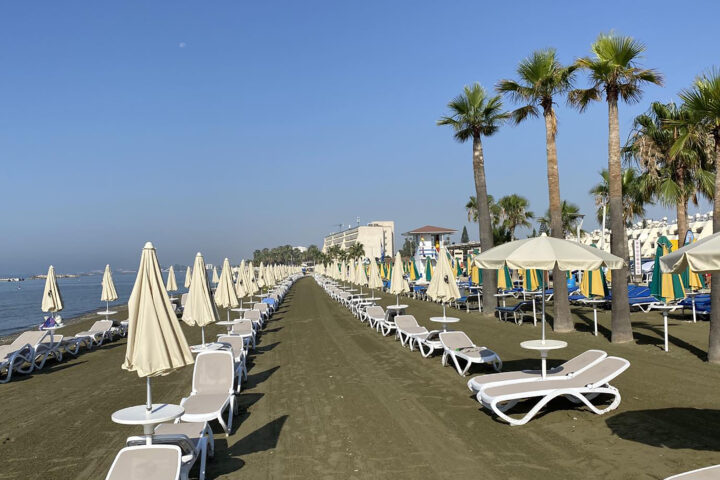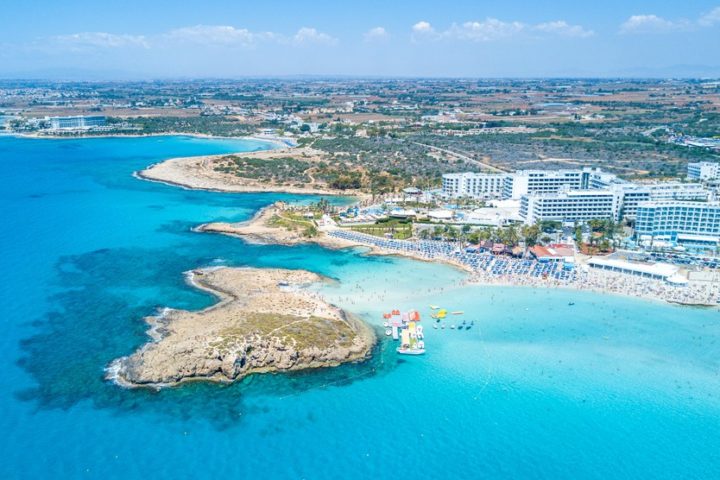Cyprus is proud, and rightly so, of its Blue Flag beaches, rising to 77 from 57 a decade ago, while the landmark marinas have also acquired the mark for the quality of services and facilities offered.
This is a great tourist attraction and helps improve Cyprus’ ranking in visitor satisfaction, not just in clean water and swimming ratings.
But holidaymakers are not all non-disabled, and many, who prefer Cyprus, are slow-moving seniors seeking easy access to beaches and facilities.
Of the total 123 recognised beaches, the vast majority fall short of accessibility for disabled people, especially those who cannot walk and who use wheelchairs.
“People who use wheelchairs cannot roll on the sand and face maximum exclusion due to their disability.
“For this reason, they need walkways made of hard material to move on the sand, but also to reach the beds and umbrellas,” said activist and head of the paraplegics’ association Dimitris Lambrianides.
Even if some beaches have installed wooden or plastic tiles in the form of a pathway, most are too narrow, and many are strewn with beach bags, flip flops or spent coffee cups, with total disregard.
It is a matter of respect for others, regardless of their special need or severe mobility issues.
Beach operators must have some sense of responsibility and ensure these walkways are wide enough, cleaned regularly and accessible to available beach beds and umbrellas.
Some popular resorts have an appalling track record regarding accessibility to toilets, a basic need, especially among the fragile with walking sticks or who need the supporting arm of a companion.
Disabled people need a break from daily daunting tasks, with difficulties accessing their workplace, the local supermarket or the bakery.
They all evade the law on mandatory ramps by hiding behind the guise of it being a pre-1990s building.
It’s not just beaches and access to the workplace that have become a major challenge.
The regulations about public healthcare through the GHS are supposed to afford everyone free and fair access to a general practitioner or medical specialist.
Yet, many private practices are in pre-dated buildings, which means a disabled person or someone with serious mobility issues cannot get to their doctor.
Of course, the laws only refer to private-owned buildings, while the accessibility issues at many state hospitals are not something to be desired.
And it’s not just access to physical services and facilities that hampers the everyday lives of disabled people.
Banks pride themselves on being digitally advanced, yet their mobile apps do not have services for people with disabilities, such as large-format lettering, voice-activated features and tasks that would not require a person to get to a branch, itself a troublesome activity physically.
The same applies to telecom companies, retailers with high counters, access to electric vehicle charging points; bus stops sheltering from the scorching summer sun and winter rain, and crumbling pavements that look like a war scene.
Perhaps this NIMBY attitude (not in my backyard) should change, and we should all have some share of respect for fellow citizens, no matter what their physical or other challenges.










